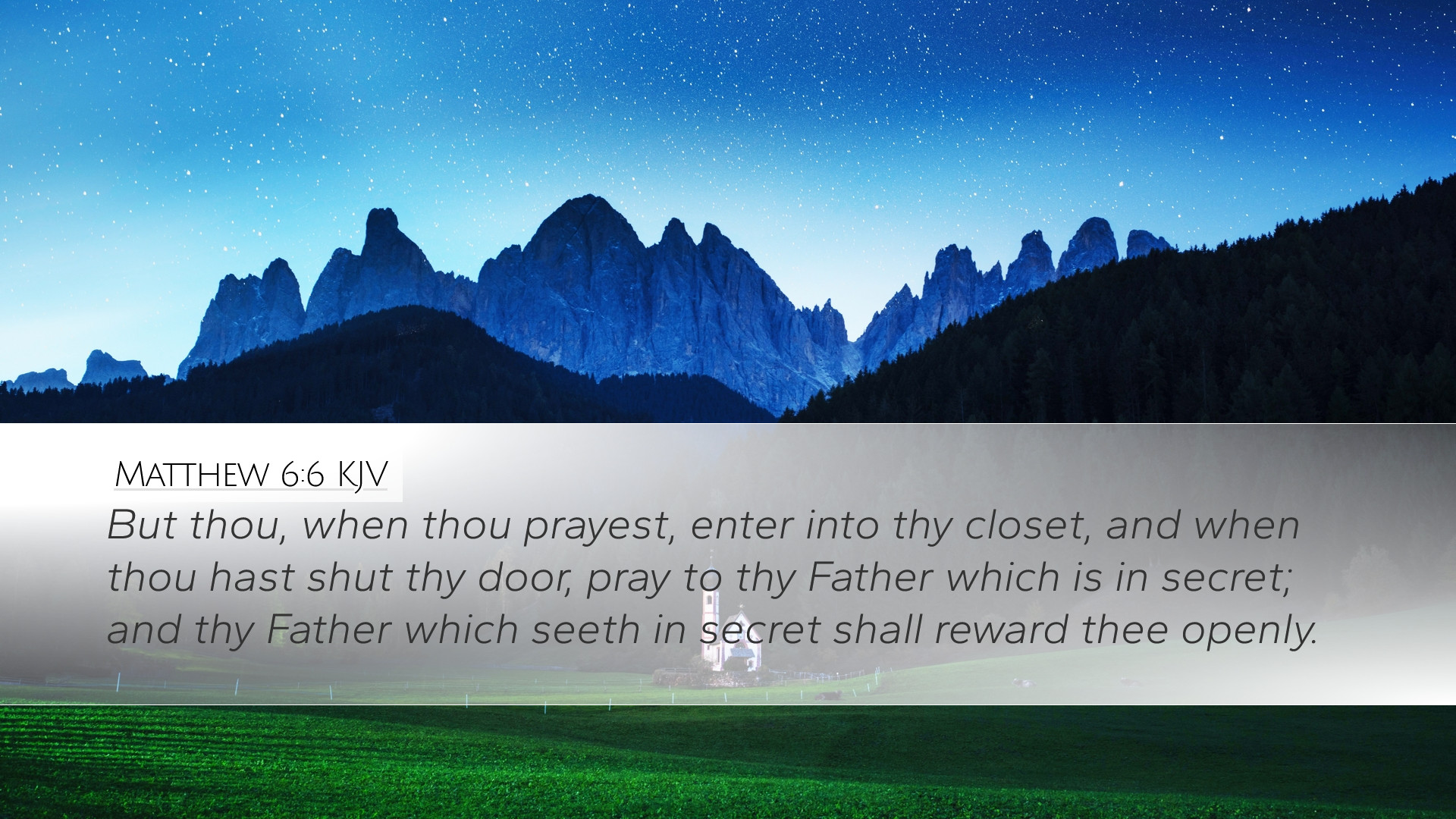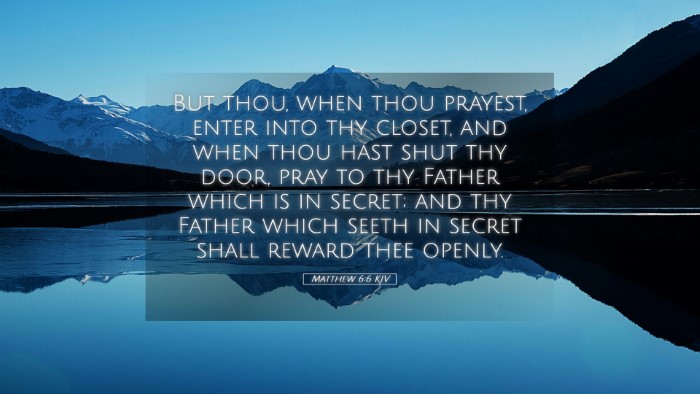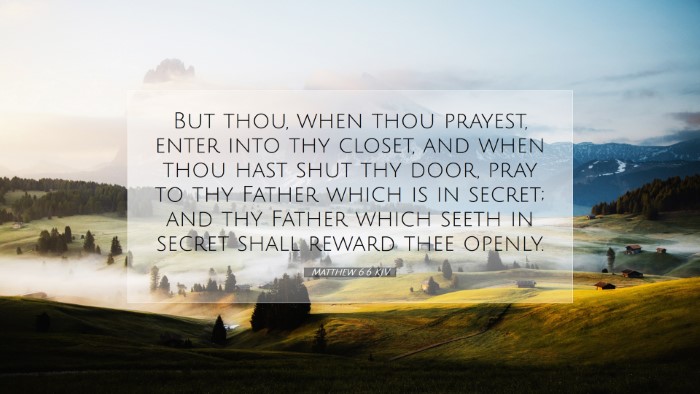Commentary on Matthew 6:6
Matthew 6:6 states, "But when you pray, go into your room, close the door and pray to your Father, who is unseen. Then your Father, who sees what is done in secret, will reward you." This verse encapsulates the essence of genuine prayer, emphasizing the importance of a personal and intimate communion with God away from public distractions.
The Significance of Private Prayer
In Matthew 6:6, Jesus directs His followers to engage in private prayer—a theme echoed in the teachings of several esteemed commentators:
- Matthew Henry remarks on the necessity of withdrawing from public attention to nurture a personal relationship with God. He notes that genuine prayer springs from the heart, rather than the desire for public recognition.
- Albert Barnes emphasizes that the act of going into a room and closing the door symbolizes the need for seclusion from the world and its distractions, allowing the believer to focus wholly on divine communion.
- Adam Clarke highlights the contrast between public and private prayer, arguing that the heart must be sincere in prayer, irrespective of the audience. He points out that our societal tendency often leans towards the performance of religion instead of its essence.
The Role of God the Father
The term "Father" in this verse underscores the relational nature of God. Each commentator reflects on this pivotal aspect:
- Matthew Henry interprets this familial relationship as one that invites trust, reinforcing the notion that God desires an intimate relationship with His followers.
- Albert Barnes discusses the implications of God being "unseen," which calls believers to exercise faith. His invisibility does not negate His presence or ability to respond to prayer.
- Adam Clarke suggests that recognizing God as Father invites a spirit of belonging and confidence when approaching Him, asserting that prayer is not merely a ritual but an act of love and dependence.
Rewards for Secret Prayer
The latter part of the verse presents a profound assurance: "Then your Father, who sees what is done in secret, will reward you." This assurance highlights the divine economy of reward based on sincerity rather than visibility.
- Matthew Henry posits that the reward mentioned is not limited to material blessings but includes spiritual enrichment, increased grace, and deeper intimacy with God.
- Albert Barnes reminds us that God rewards those who earnestly seek Him in private. He argues that the blessings from such prayers may not always be immediately tangible but possess eternal significance.
- Adam Clarke articulates that the reward can manifest in various forms, such as inner peace, joy, and divine guidance, emphasizing that spiritual rewards often transcend earthly considerations.
Implications for Contemporary Believers
The teachings derived from Matthew 6:6 carry weighty implications for modern-day Christians:
- Believers are called to regularly engage in private prayer, fostering spiritual maturity and growth in faith.
- Understanding the importance of authenticity over outward appearances can transform personal and communal worship experiences.
- The promise of God's reward encourages persistence and fidelity in individual prayer lives, reassuring believers that their efforts are never in vain.
Conclusion
In conclusion, Matthew 6:6 serves as a crucial reminder of the heart of prayer rooted in secrecy and sincerity. Drawing insights from public domain commentaries enriches our understanding of this passage, urging believers to cultivate a personal prayer life that reflects their relationship with God the Father. As pastors, students, theologians, and Bible scholars delve into this verse, the challenge remains to embody these principles in a world that often values the spectacular over the sacred.


